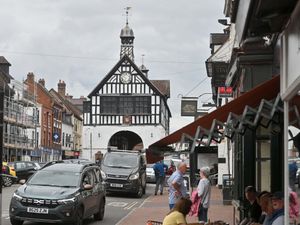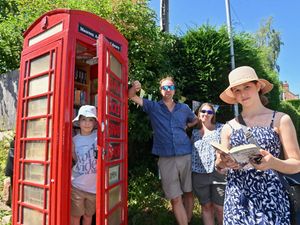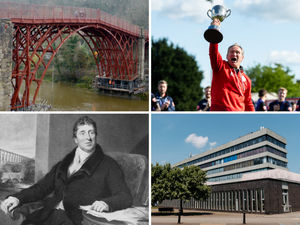Film Talk: Dumas’ heroes back for second part of swashbuckling saga
All for one, and one for all... I’ll tell you what, these chaps have sure seen some screen time over the years.
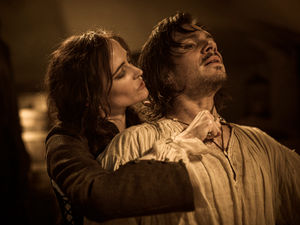
To find the first instance of Alexandre Dumas’ fabled musketeers on screen, you’d in fact have to go back more than a century to 1911 and dive into the silent movie archives.
The first big Hollywood feature telling the tale of these iconic French heroes came in 1916, and (skipping a few chapters somewhat) between then and 1973 there were no less than 13 cinematic depictions of the story of D’Artagnan, Athos, Porthos and Aramis.
In ‘73 itself, The Three Musketeers – the first part of a two-film adaptation starring Michael York, Charlton Heston, Oliver Reed, Frank Finlay and Richard Chamberlain – dropped and became the iconic on-screen version of the classic novel. When the second part, The Four Musketeers, was released the following year, this was solidified. Yet, the finest portrayal of the characters was yet to come.
In 1998, Randall Wallace’s The Man In The Iron Mask placed Jeremy Irons, John Malkovich, Gérard Depardieu and Gabriel Byrne in the shoes of Dumas’ ageing protagonists, with a sublime Leo DiCaprio in the duel role of titular hero and sinister villain. This flick was glorious, and sadly, following Musketeer movies have never really struck the same chord (The less said about the 2011 Matthew Macfadyen/Orlando Bloom effort, the better).
Yet this year, hope sprung. Released back in April, The Three Musketeers: D’Artagnan marked the first instalment in director Martin Bourboulon’s Dumas saga, and was well received. Now, the second part – The Three Musketeers: Milady – is here to wrap up the tale. But can it seal the deal on one of the best Musketeers adaptations in years? En garde!
THE THREE MUSKETEERS: MILADY (UK 12A/ROI 12A, 114 mins)
Released: December 15 (UK & Ireland)
Director Martin Bourboulon’s enthusiastic rifle through pages of Alexandre Dumas’s novel saddled up in April with the expertly choreographed sword fights of The Three Musketeers: D’Artagnan, introducing Francois Civil in the title role.
Destructive elements with the French royal court appear to gain the upper hand in a breathlessly staged second chapter, which welcomes back mud-caked main cast including Eva Green as Milady de Winter, who miraculously survived her tumble off a cliff in the first film.
She is a vampy delight and brandishes Milady’s sexuality as a weapon in deliciously heated scenes with Civil, extending the rough and tumble to bruising hand-to-hand combat in an inferno.
You can feel the heat ripple off the screen.
Green snags some of the script’s most withering putdowns and one-liners like when Milady casually watches on horseback as D’Artagnan wrestles for his life with a blade-wielding assassin.
“The ending was a bit drawn out,” she casually opines as he gasps for air.
Technical virtuosity is undiminished with numerous thrilling sword fights, the storming of battlements and a death-defying leap into a moat (the camera follows close behind so we also experience gravity’s pull).
A handy montage summarises machinations of the opening salvo, which concluded with D’Artagnan (Civil) and Musketeer compatriots Athos (Vincent Cassel), Aramis (Romain Duris) and Porthos (Pio Marmai) thwarting an assassination attempt on King Louis XIII (Louis Garrel). The finger of suspicion points to the Cardinal de Richelieu (Eric Ruf) as the mastermind. D’Artagnan regains consciousness from a blow to the head at the fortified chateau of Le Comte de Chalais (Patrick Mille), who is part of a conspiracy within the royal court to fan flames of civil war.
The young swordsman’s primary concern is locating his kidnapped sweetheart, the queen’s seamstress and confidante Constance (Lyna Khoudri).
She is supposedly locked in the dungeon but Chalais’s prisoner turns out to be Richelieu’s seductive spy, Milady (Green).
On the spur of the moment, D’Artagnan forges an uneasy alliance with his enemy to escape the chateau and unite with the Musketeers to protect the throne.
Meanwhile, the King’s younger brother Gaston (Julien Frison) chomps at the bit to lead French troops into glorious battle.
The Three Musketeers: Milady is a rip-roaring romp that dovetails elegantly with the instalment dedicated to D’Artagnan.
Screenwriters Matthieu Delaporte and Alexandre de La Patelliere unravel tangled subplots from the first film, expanding Richelieu’s vice-like grip on affairs in Paris and Athos’s devotion to his son.
Aramis and Porthos are largely surplus to requirements and operate as comic relief.
Bourboulon’s directorial brio energises every clash of blades and flurry of fists with an emphasis on physical stunts and effects. After almost four hours combined in the company of Dumas’s conflicted characters, I am hungry for more.
GODZILLA MINUS ONE (UK 12A/ROI 12A, 124 mins)
Released: December 15 (UK & Ireland)
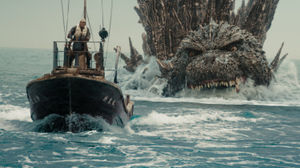
To mark the impending 70th anniversary of Godzilla’s first rampage across the big screen, which lit a fuse on the longest continuously running film franchise in history (as recognised by Guinness World Records), award-winning writer-director Takashi Yamazaki revisits first sightings of the behemoth – or kaiju – in a battle royale on land and sea.
Punctuated by visual effects sequences overseen by the filmmaker and Kiyoko Shibuya, Godzilla Minus One pits a ragtag group of former Japanese military men against the might of a dinosaur-like predator empowered with a heat ray following nuclear tests on Bikini Atoll.
Yamazaki wreaks large-scale devastation on a low budget including an attack on the Tokyo district of Ginza, where train passengers tumble to their demise as Godzilla rips carriages from tracks and decimates buildings that survived the air raids with angry swishes of its tail.
Nationalistic fervour flows through the veins of an old-fashioned script that manages to be both spectacular and dramatically intimate, witnessing the rise of the hulking beast through the eyes of a chosen family of wartime survivors, who epitomise the resolve of the Japanese people.
Inconsistent performances and uneven pacing undermine some of the quieter moments as characters wrestle with post-traumatic stress disorder but the titular terror is majestic throughout, with clear potential for Yamazaki to return to this monster-laden universe.
In 1945, opposing forces of the Second World War play their final hands and kamikaze pilot Koichi Shikishima (Ryunosuke Kamiki) lands on Odo Island off the Japanese mainland, claiming a technical malfunction with his aircraft.
Before Koichi can complete his mission and restore his honour, Godzilla rampages across the military base, killing everyone except for the airman and Imperial Japanese Navy mechanic Sosaku Tachibana (Munetaka Aoki).
Koichi eventually returns to the smouldering ruins of Tokyo where Allied bombs have killed his parents.
To numb his survivor’s guilt, the pilot clears mines from waters surrounding Japan aboard the Shinsei Maru, captained by Yoji Akitsu (Kuranosuke Sasaki).
He also provides safe harbour for a homeless woman named Noriko (Minami Hamabe) and her adopted daughter (Sae Nagatani).
“It’s a bit late to play the hero,” angrily remarks neighbour Sumiko (Sakura Ando).
Her words rub salt into Koichi’s open wounds and he vows to avenge the fallen as part of a daredevil plan to slay Godzilla conceived by Navy weapons engineer Kenji Noda (Hidetaka Yoshioka).
Godzilla Minus One is an affectionate throwback to the 1954 picture Gojira, which famously used a performer in a suit on miniature sets to depict the creature’s capacity for destruction.
Yamazaki’s iteration is more technically polished but still focuses on human stories in the eye of the storm and underlines the title character as a metaphor for the omnipresent threat of nuclear war to a bombastic score from returning composer Akira Ifukube. Some lessons bear repetition.
WHAT HAPPENS LATER (UK 15/ROI 15A, 105 mins)
Released: December 15 (UK & Ireland)
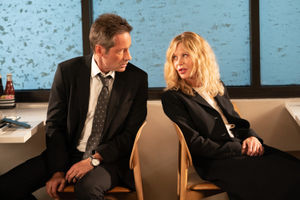
Towards the conclusion of Meg Ryan’s second directorial feature, a rom-com dedicated to the memory of When Harry Met Sally… screenwriter Nora Ephron, David Duchovny’s exhausted businessman loses patience with the droll public address system at the Midwestern airport where he has been stranded by a snowstorm.
“What’s the joke? What’s the point?” he rages into thin air.
We could justifiably ask the same questions of What Happens Later, a dramatically uneven two-hander adapted from Steven Dietz’s stage play Shooting Star, which engineers a meet-cute between ex-lovers at “some little regional airport”, 25 years after they last saw each other.
Appealing screen chemistry between Ryan and Duchovny can’t convince us to care about whether their 50-something singletons should fasten seatbelts for a second chance at something meaningful.
THE LOST BOYS (UK 12A/ROI 12A TBC, 83 mins)
Released: December 15 (UK & Ireland, selected cinemas)
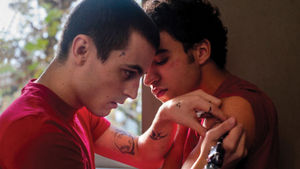
Not to be confused with the Brat Pack supernatural horror directed by Joel Schumacher, which celebrated its 35th anniversary last year, The Lost Boys is a tender French language drama about the secret desire of two inmates at a detention centre for young offenders.
Zeno Graton’s debut feature centres on 17-year-old Joe (Khalil Ben Gharbia), who has served six months and is allowing himself to contemplate the reality of his impending release.
Without family to support him, Joe is on his own on both sides of the facility’s walls and his lonely, questioning eyes fixate on new arrival William (Julien De Saint Jean).
Whispers suggest William is a murderous brute but Joe is irresistibly drawn to his fellow offender.
It is not long before feelings deepen the young men begin to spark a forbidden romance.

